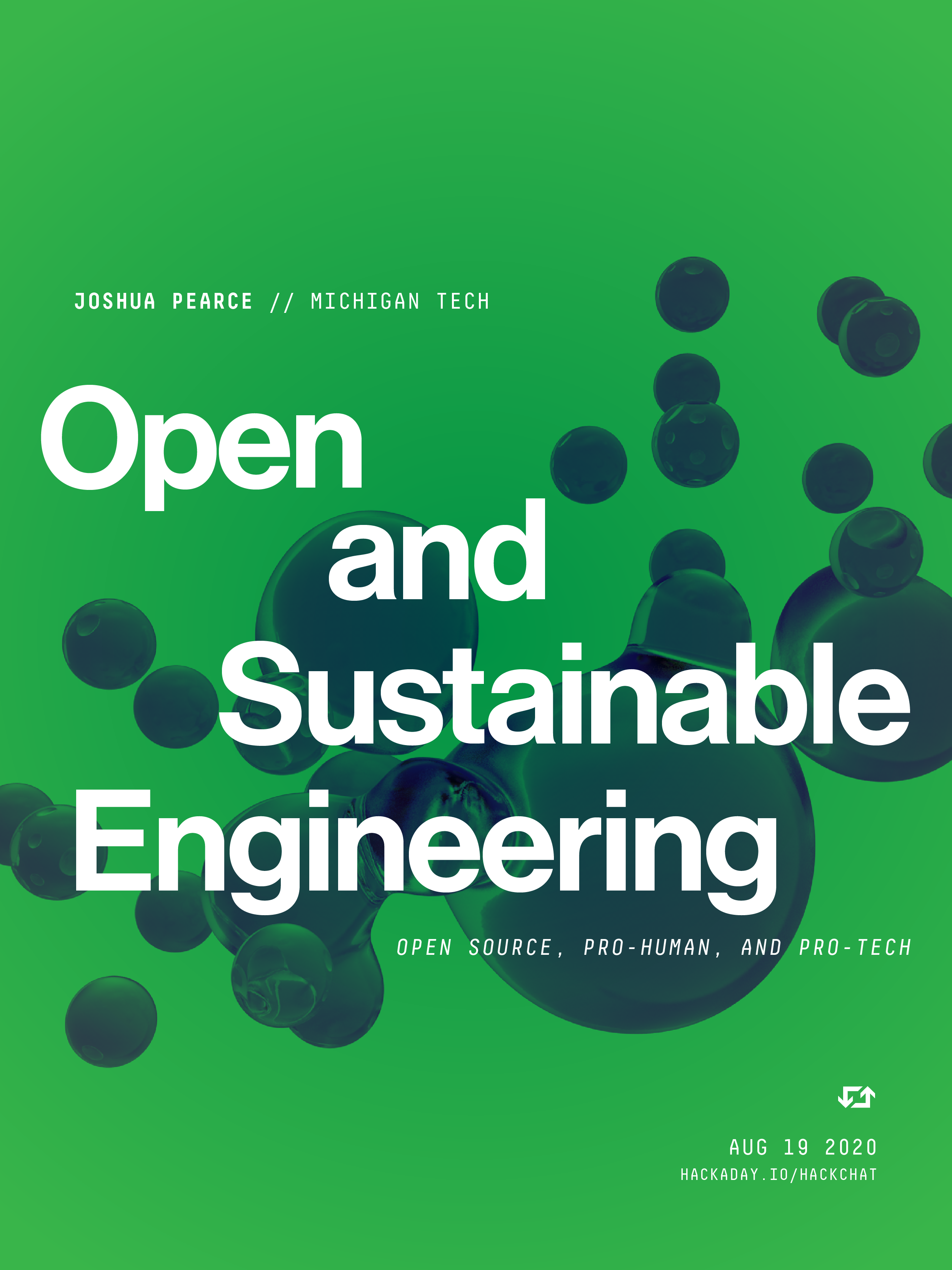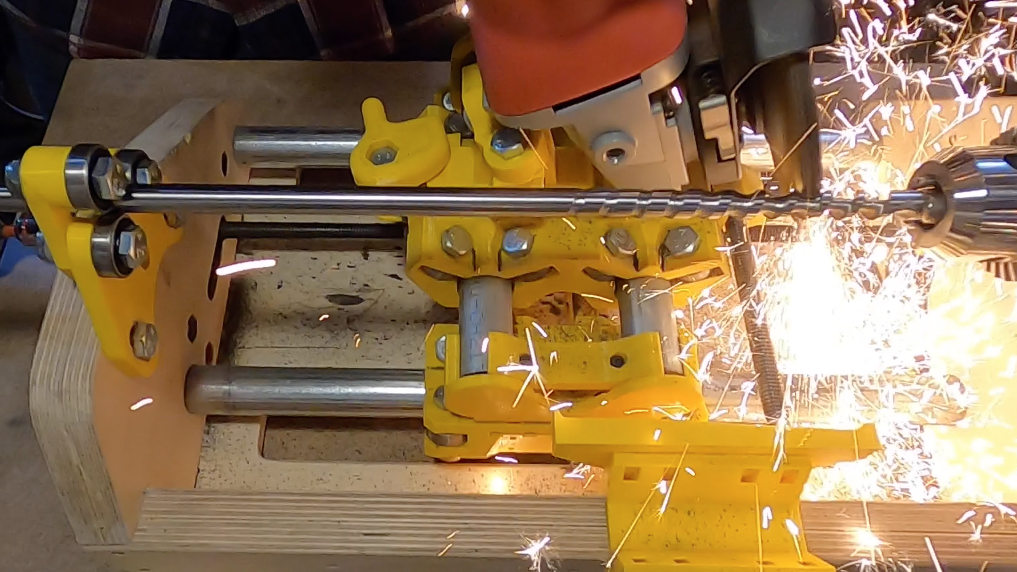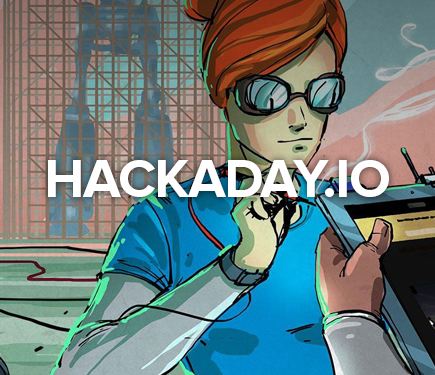Joshua Pearce will host the Hack Chat on Wednesday, August 19, 2020 at noon Pacific Time.
Time zones got you down? Here's a handy time converter!

Since the first of our hominid ancestors learned to pick up a rock and make it into a tool, we humans have been using our engineering skills to change the world. For most of the 2 million or so years since that first technological leap, natural materials like stone and wood were the focus of our engineering projects, and except for a few tantalizing remnants, most of what was built has returned to the Earth whence it came.
Then we discovered other materials; we learned to free metals from rocks and harvest the fossilized hydrocarbon remains of ancient plants. Iron, aluminum, plastic, and silicon became our stock in trade, and the planet is now layered so thick with these materials and the byproducts of harvesting them that a new geological epoch, the Anthropocene Epoch, has been proposed to cover this time of human activity and its impact on the geological record.
But if we humans are clever enough to make such an impact, we should be clever enough to think our way out of the mess, and wise enough to see the need. That's where the efforts of Dr. Pearce's research at the Michigan Tech Open Sustainability Technology (MOST) lab are focused. Dr. Pearce envisions a sustainable future powered by pervasive solar photovoltaic systems and using open-source technologies like 3D printing to drive new models for manufacturing. We've recently seen interesting work from his lab, like this grinder that makes custom compression screws for plastic recycling. The MOST page on Hackaday.io is filled with other great examples of the technology that supports their mission, from low-cost environmental testing instruments to 3D-printable microfluidics.
Dr. Pearce will join us on the Hack Chat to talk about open and sustainable engineering. Be sure to stop by with your questions and to find out what you can do to engineer a brighter future, starting right in your own shop.

 OK everyone, time to get started. I'm Dan, I'm the mod for today's Hack Chat with Dr. Joshua Pearce from Michigan Tech. He's here today to talk to us about open and sustainable engineering.
OK everyone, time to get started. I'm Dan, I'm the mod for today's Hack Chat with Dr. Joshua Pearce from Michigan Tech. He's here today to talk to us about open and sustainable engineering.

